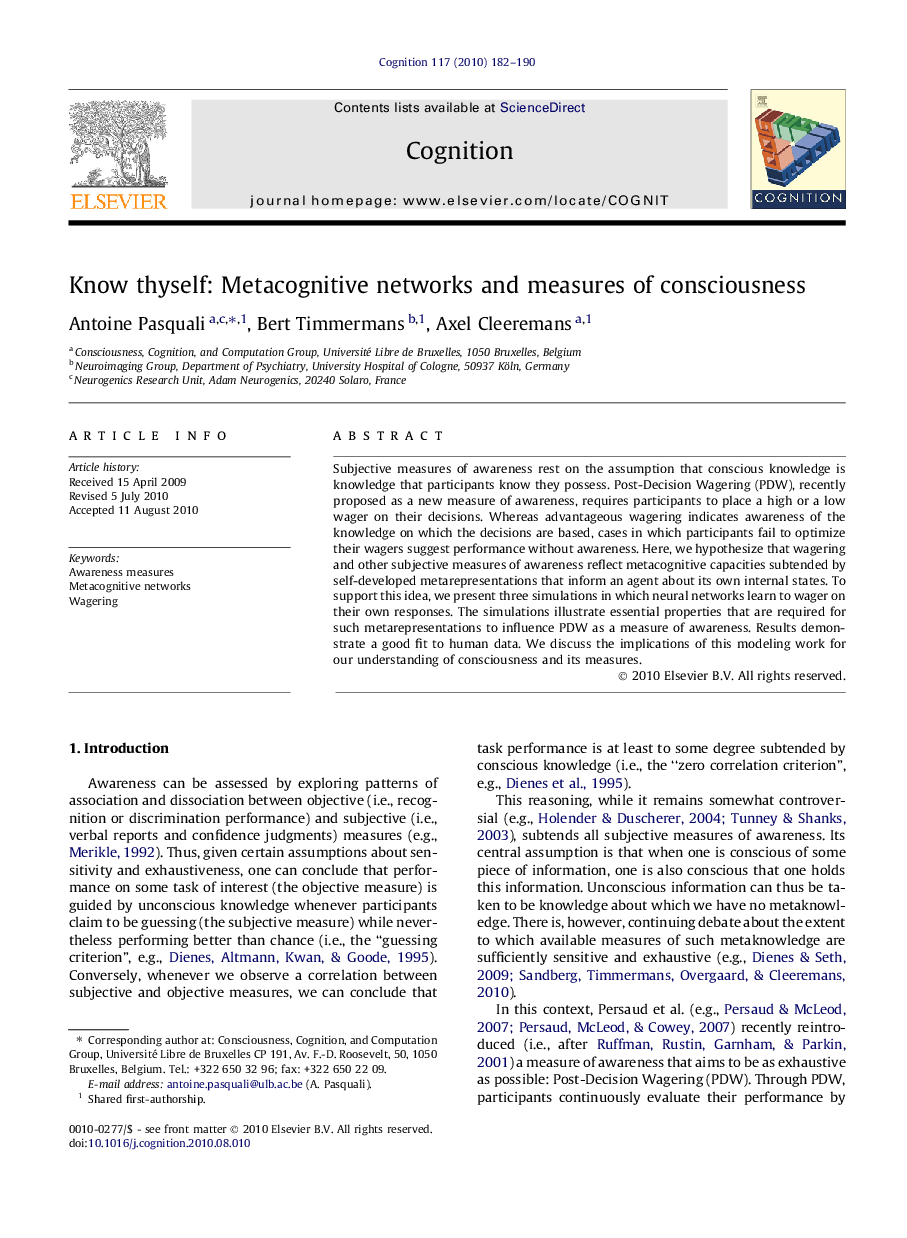| Article ID | Journal | Published Year | Pages | File Type |
|---|---|---|---|---|
| 926615 | Cognition | 2010 | 9 Pages |
Subjective measures of awareness rest on the assumption that conscious knowledge is knowledge that participants know they possess. Post-Decision Wagering (PDW), recently proposed as a new measure of awareness, requires participants to place a high or a low wager on their decisions. Whereas advantageous wagering indicates awareness of the knowledge on which the decisions are based, cases in which participants fail to optimize their wagers suggest performance without awareness. Here, we hypothesize that wagering and other subjective measures of awareness reflect metacognitive capacities subtended by self-developed metarepresentations that inform an agent about its own internal states. To support this idea, we present three simulations in which neural networks learn to wager on their own responses. The simulations illustrate essential properties that are required for such metarepresentations to influence PDW as a measure of awareness. Results demonstrate a good fit to human data. We discuss the implications of this modeling work for our understanding of consciousness and its measures.
